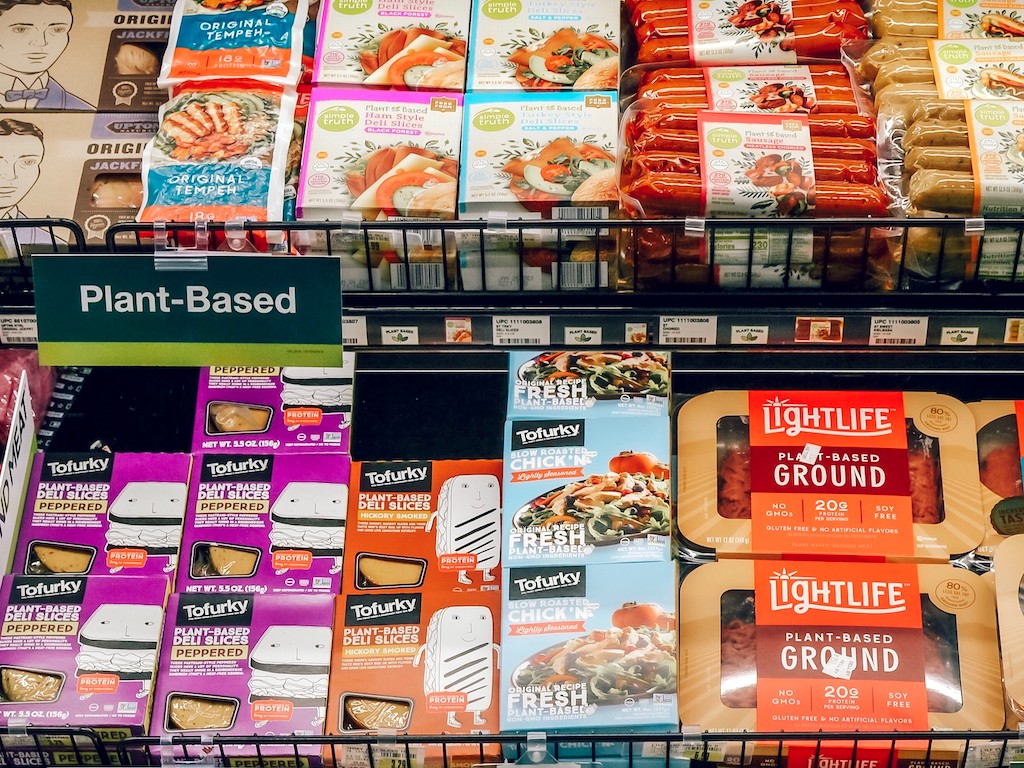3 Mins Read
A new report from Dutch multinational financial firm ING predicts that the plant-based meat and dairy market in the European Union and the U.K. will balloon to €7.5 billion (US$8.87 billion) in the next five years. The analysis also found that while plant-based alternatives remain currently a small share of the enormous meat and dairy industry, at the current growth rate, we can expect sales of the sector to surpass conventional animal products by the mid-2050s.
Released in October, ING research estimates that with an annual growth rate of almost 10% per year, the plant-based alternatives food market in Europe and the U.K. will reach US$8.87 billion by 2025, compared to just US$5.2 billion in 2019. Of all the countries in the region, the U.K. currently has the most developed market with retail sales standing at nearly US$1.18 billion, followed closely by France and Germany.
“Much of this achievement can be attributed to the introduction of new products and the underlying trend among consumers to consider health, animal welfare and sustainability in their decision making,” the report says.
As of right now, analysts say that the rise of plant-based sales still represents only a fraction of the wider meat and dairy market – making up only 0.7% and 2.5% respectively. However, given the current level of investment and speed of innovation across the plant-based value chain, ING predicts that the three main barriers the industry faces will be “lowered substantially”.
Much of this achievement can be attributed to the introduction of new products and the underlying trend among consumers to consider health, animal welfare and sustainability in their decision making.
ING Research
The three challenges listed in the report include the price gap with animal-based foods, user experience of plant-based products and the distribution and availability of these products in the mass market. Overcoming these “weak spots”, ING estimates that the market share of plant-based meat alternatives will grow to 1.3%, while dairy alternatives will take up 4.1% by 2025.
If the trend continues over the next decades, plant-based protein alternatives could surpass sales of their animal counterparts by the mid-2050s, the report predicts.
The analysis also suggests that there will be fierce competition among plant-based players as the market solidifies in the next few years, especially between food techs who represent “first movers” in the space, existing food giants and emerging startups who have yet to establish a presence.
As more and more meat and dairy companies focus on this space competition increases, making it increasingly difficult, for new plant-based startups.
ING Research
“Over the next five years, the battle over market share will heat up, especially in established markets in Northwestern Europe,” said the authors. “As more and more meat and dairy companies focus on this space, competition increases, making it increasingly difficult for new plant-based startups.”
A recent FAIRR report has indicated that 40% of mainstream food manufacturers and retailers in the world have already established dedicated plant-based teams to develop and sell new vegan products as part of their strategy to tap into the rapidly growing market.
Other studies have also presented bullish predictions of the plant-based market in the coming years. Zion Market Research, for example, recently published a report estimating that the global plant-based meat market will grow by 8.6% annually to reach US$21 billion by 2025, with Asia driving much of the demand.
Lead image courtesy of Kroger.




